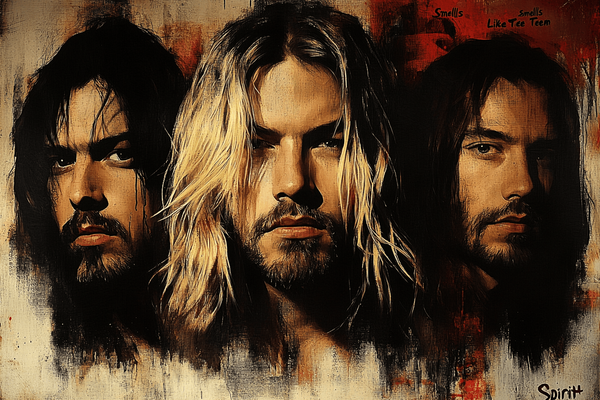About the great power of counting
Counting is a very common and almost invisible phenomenon. However, it provides many opportunities, and can even be dangerous.

People are good at ignoring the great phenomena thanks to which we exist and sometimes live well. Among them are the solid ground under your feet, gravity, air, microorganisms, plants, and animals. Throw out any of these components, and there would be no us.
I would like to say a little more about the air. The air is like a void for us, we don't see it. And the void is like air, look at the photo of a chamber with vacuum created in it.

Nothing special is visible. Here is a rather eloquent example from the book “Babakin Craters” [1] regarding air and its absence:
And now I remember how once the radio operator Mikhail Sinitsa reported in the Chief's office.
— Georgy Nikolaevich, we managed to get these four lamps, — Sinitsa began to speak expecting a certain impression.
As soon as he said this, the lamps immediately appeared in Babakin's thin fingers. It seemed that they completely captured his attention. The speaker even stopped silent for a while.
— Yes... Babakin said, thinking about something of his own.
One spherical lamp, shining from the inside with a silver coating, particularly interested him.
— Yes... He repeated it non–committally.
Sinitsa listed all the technical characteristics of the lamps.
— That's just, — he concluded, — none of them, according to technical conditions, will withstand the overloads that the structural engineers gave out. In my opinion, they always give it with a guaranteed margin.
Babakin looked at the sample he liked, squeezed it as if passing the warmth of his hand. Then he put it on the table and asked indifferently:
— And what exactly will not stand?
— Binding, as they say, of a cylinder to a base.
— So what? This shouldn't scare you. The lamp works on the moon, and there, as you know, there is an absolute vacuum. Even if the balloon not only breaks, but also evaporates, the lamp should work on the Moon. If, of course, it will only be a matter of binding the cylinder with a cap.
Just as the ability to notice the air, and sporadically, its absence, opens amazing possibilities for us, so does the ability to count something. It cannot be said that without counting we would not have survived at all, but we would have lived very differently. At least, you wouldn’t be able to read these lines right now. After all, if people did not put the characters in a certain order, did not give each character an ordinal number and did not explain to the computer how to draw each of the characters, then there would be no way to write text that is displayed the same way on different devices.
The ability to count something allows you to structure your activities very well. Recently, I watched my five-year-old daughter trying to solve a computer game puzzle, in which you need to build a funny mechanism doing a strange job. Such things are also called Rube Goldberg machines [2].
At some point, my daughter got stuck. She decided to switch to the brute force method by moving her finger quickly across the screen to try numerous options. But the fun of the situation is that she tried only a few options. The speed of her finger movements created only the illusion of a comprehensive search. But if she thought about the parts of the mechanism in terms of “first”, “second”, …, “last”, she could really try everything. It was enough just to count.
Where else would it be useful to count? Where the garden plants grow. Sometimes in the yards you can see that some plants receive proper care, and some seem to miss it. A human's ability to focus on many things is not very developed. In the process of caring for a dozen or two dozen of plants, you can skip something. Missed once, missed twice, and that's it — hello, yellow juniper. Another thing is, if the plants are counted, numbers are assigned to them.
With the numbers assigned to the plants, many things appear at once. This is the order of care, from number 1 onwards in the ascending order. Furthermore, it’s a quick identification of plants, for example, number 8 — rose. Fans of process optimization can rearrange the numbers to speed up care or minimize the use of tools, for example, a pruner. Statisticians can accumulate information and quickly correspond it to a particular plant by using a number.
If this is still not impressive, then read the following story. There were times when people were horrified by the counting, or in other words, the census. Here is the evidence of the times of the Golden Horde [3]:
The population of the captured countries met the scribes with hatred. For example, according to the Novgorod Chronicle, "the common people would not give their numbers for tribute," and the Georgian chronicles write that after the census "the entire population fell into great grief." The matter was complicated by the fact that the local rulers uncontrollably exploited the population, exhausting it with endless extortion, brutally cracking down on the recalcitrant. The Golden Horde rule was imposed and supported by such methods.
You can count not only clearly distinct things, but also the non-discrete ones. All you need is a method. For example, you can count France. And no, the score will not end with the word “one”, meaning one France on the whole Earth. For the first time, France was accurately counted by the number 400 [4]:
France was the first country to undertake a national triangulation, which it did in 1668. The most difficult single challenge in any triangulation is to measure the baseline. Abbé Jean Picard used an 11km stretch of straight road on the outskirts of Paris, between a mill at Villejuif and the pavilion at Juvigny, which he measured meticulously with wooden rods. He then headed northwards, using landmarks like clock towers and the tops of hills as the points of his triangles, measuring only the angles between them. When Picard reached the Atlantic Ocean he discovered that the French coastline was significantly nearer to Paris than had previously been thought. 'Your work has cost me a major part of my realm!' harrumphed King Louis XIV. Picard's triangulation continued for a century after his death, until France was covered by 400 triangles. The celebrated map of the nation it produced had more detail than any previously made, with almost the same scale as the standard yellow Michelin tourist maps available now.
As you can see, the power of counting impressed not only common people, but also by great kings.
This blog is dedicated to lists, and the demanding reader will ask, what does a list have to do with it?! The counting forms the basis of such a phenomenon as an ordered list. Before reading this post, it was possible to treat it without the respect, but now that's over, I caught you in the trap of knowledge😋
Because of falling into this trap, you may want to start panicking and looking carelessly at an unordered list. Don’t be that hasty, there is another powerful mathematical concept behind it, the concept of a set.
List of links:
[1] Mikhail Borisov, “Babakin Craters” book (Russian “Кратеры Бабакина”), excerpt taken from the website “Episodes of Space” (Russian). Translation from Russian by German Tebiev
[2] “Rube Goldberg machine” from “Wikipedia”
[3] V.I. Abaev North-Ossetian Institute of Humanitarian and Social Studies, “The History of Ossetia in 2 volumes. Volume 1” (Russian “История Осетии в 2-х томах. Том 1”), ISBN 978-5-91480-152-3. Translation from Russian by German Tebiev, quote from the Novgorod Chronicle is taken from the “The Chronicle Of Novgorod 1016-1471” translated by Robert Michell, and Nevill Forbes
[4] Alex Bellos, “Alex Through the Looking Glass”, ISBN 978-1-40884-572-1



